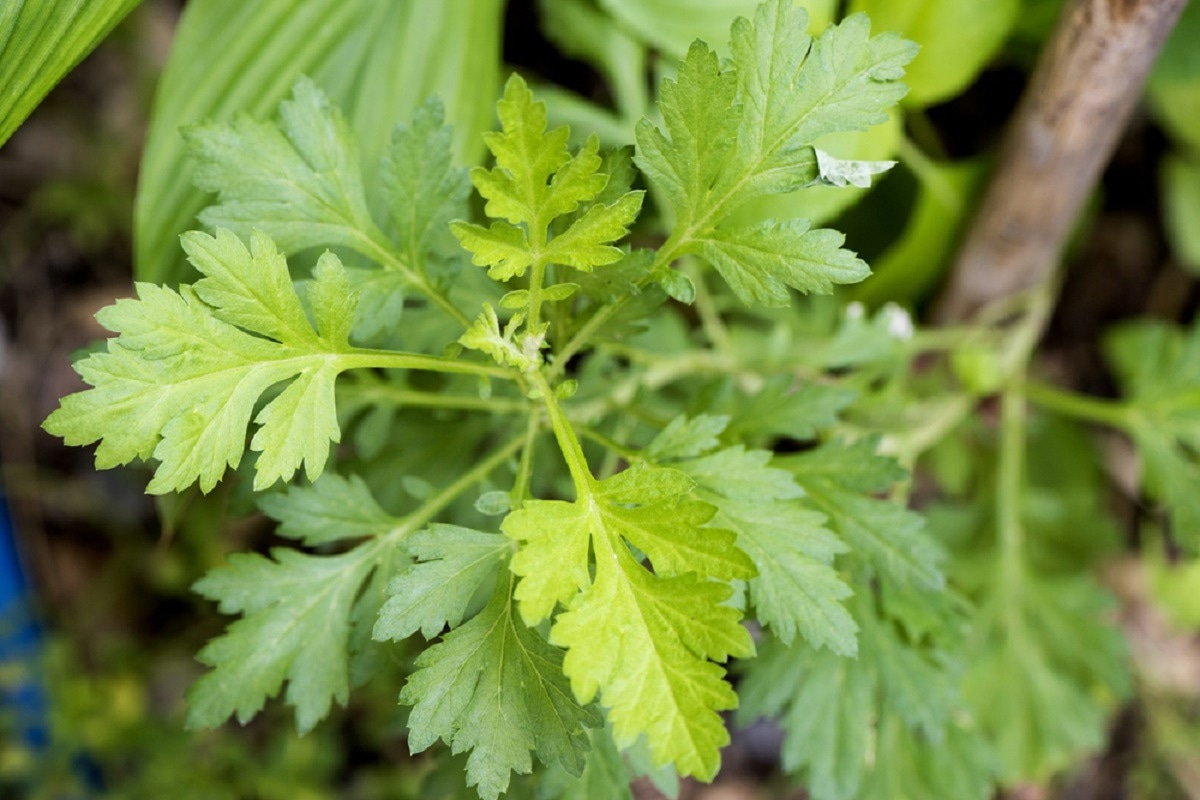In a recent study posted to the bioRxiv* preprint server, researchers assessed the effect of Artemisia annua hot water extracts against the severe acute respiratory syndrome coronavirus 2 (SARS-CoV-2) Omicron variant.
 Study: SARS-CoV-2 omicron variants succumb in vitro to Artemisia annua hot water extracts. Image Credit: wasanajai/Shutterstock
Study: SARS-CoV-2 omicron variants succumb in vitro to Artemisia annua hot water extracts. Image Credit: wasanajai/Shutterstock

 This news article was a review of a preliminary scientific report that had not undergone peer-review at the time of publication. Since its initial publication, the scientific report has now been peer reviewed and accepted for publication in a Scientific Journal. Links to the preliminary and peer-reviewed reports are available in the Sources section at the bottom of this article. View Sources
This news article was a review of a preliminary scientific report that had not undergone peer-review at the time of publication. Since its initial publication, the scientific report has now been peer reviewed and accepted for publication in a Scientific Journal. Links to the preliminary and peer-reviewed reports are available in the Sources section at the bottom of this article. View Sources
Background
Coronavirus disease 2019 (COVID-19) vaccines have played a critical role in curbing the SARS-CoV-2 transmission. However, recent studies have reported the waning vaccine efficacy against emerging SARS-CoV-2 variants. Hence, there is an urgent need to develop cost-effective and efficacious therapeutics against COVID-19 infections.
About the study
In the present study, researchers examined the efficacy of Artemisia annua hot water extracts against SARS-CoV-2 Omicron along with its subvariants.
The team obtained hot-water extracts prepared from the dried leaves of Artemisia annua by boiling the leaves in water for 10 minutes and filtering the solids with a sieve. Artemisinin (ART) analysis was then performed using gas chromatography-mass spectrometry. The team sourced SARS-CoV-2 isolates and assessed the tissue culture infectious dose (TCID) by titrating the virus after propagation in Vero E6 cells. The multiplicity of infection (MOI) used was 0.1.
Dilutions of the hot-water extracts were subsequently incubated in tissue culture plates having a Ver E6 monolayer. SARS-CoV-2 was then added to each plate after the addition of the extract to an MOI of 0.1. The cells were cultured for three days before the assessment of cytopathic effects. The half-maximal inhibitory concentrations (IC50) values corresponding to the novel variants or the wild-type strain were normalized by measuring the total ART content in the hot-water extracts.
Results
The study results showed that hot water extracts obtained from four cultivars of Artemisia annua inhibited the SARS-CoV-2 Omicron variant and its sub-variants. The team noted IC50 between 20 µg and 106 µg of ART content corresponding to each of the cultivars. Furthermore, there was no measurable loss in cell viability for any of the cultivar extracts.
The team observed that ART displayed anti-SARS-CoV-2 activity. A study showed that among patients treated with ART-piperaquine (ART-PPQ) or placebo, no viral titers were detected by polymerase chain reaction (PCR) in the ART-PPQ treated patients. Another study noted that patients treated with an oral spray containing ART, curcumin, vitamin C, and frankincense called ArtemiC showed faster recovery from COVID-19.
The present study also showed that ART was not the best candidate for a therapeutic phytochemical against COVID-19 in the A. annia extracts. Still, the identity of the non-ART phytochemicals responsible for anti-COVID-19 activity was unknown. Another study noted that a total of 19 compounds were remarked for their immune regulatory, anti-inflammatory, and therapeutic characteristics. Among these 19 phytochemicals, isorhamnetin and luteolin were the best therapeutic candidates against COVID-19.
Rosmariniic acid, isorhamnetin, and luteolin were detected in A. annua and displayed substantial activity against the SARS-CoV-2 main protease called 3CLpro, which is a chymotrypsin-like protease that plays an important role in viral replication. Furthermore, phytochemicals like myricetin and quercetin found in A. annua displayed significant anti-SARS-CoV-2 activity.
Conclusion
The study findings showed that hot-water extracts of A. annua displayed substantial activity against SARS-CoV-2 as well as the newly emerging variants, including Omicron and its subvariants. While the specific phytochemicals responsible for the anti-COVID-19 activity in A. annua are still unknown, several potential candidates have emerged which require future clinical trials.

 This news article was a review of a preliminary scientific report that had not undergone peer-review at the time of publication. Since its initial publication, the scientific report has now been peer reviewed and accepted for publication in a Scientific Journal. Links to the preliminary and peer-reviewed reports are available in the Sources section at the bottom of this article. View Sources
This news article was a review of a preliminary scientific report that had not undergone peer-review at the time of publication. Since its initial publication, the scientific report has now been peer reviewed and accepted for publication in a Scientific Journal. Links to the preliminary and peer-reviewed reports are available in the Sources section at the bottom of this article. View Sources